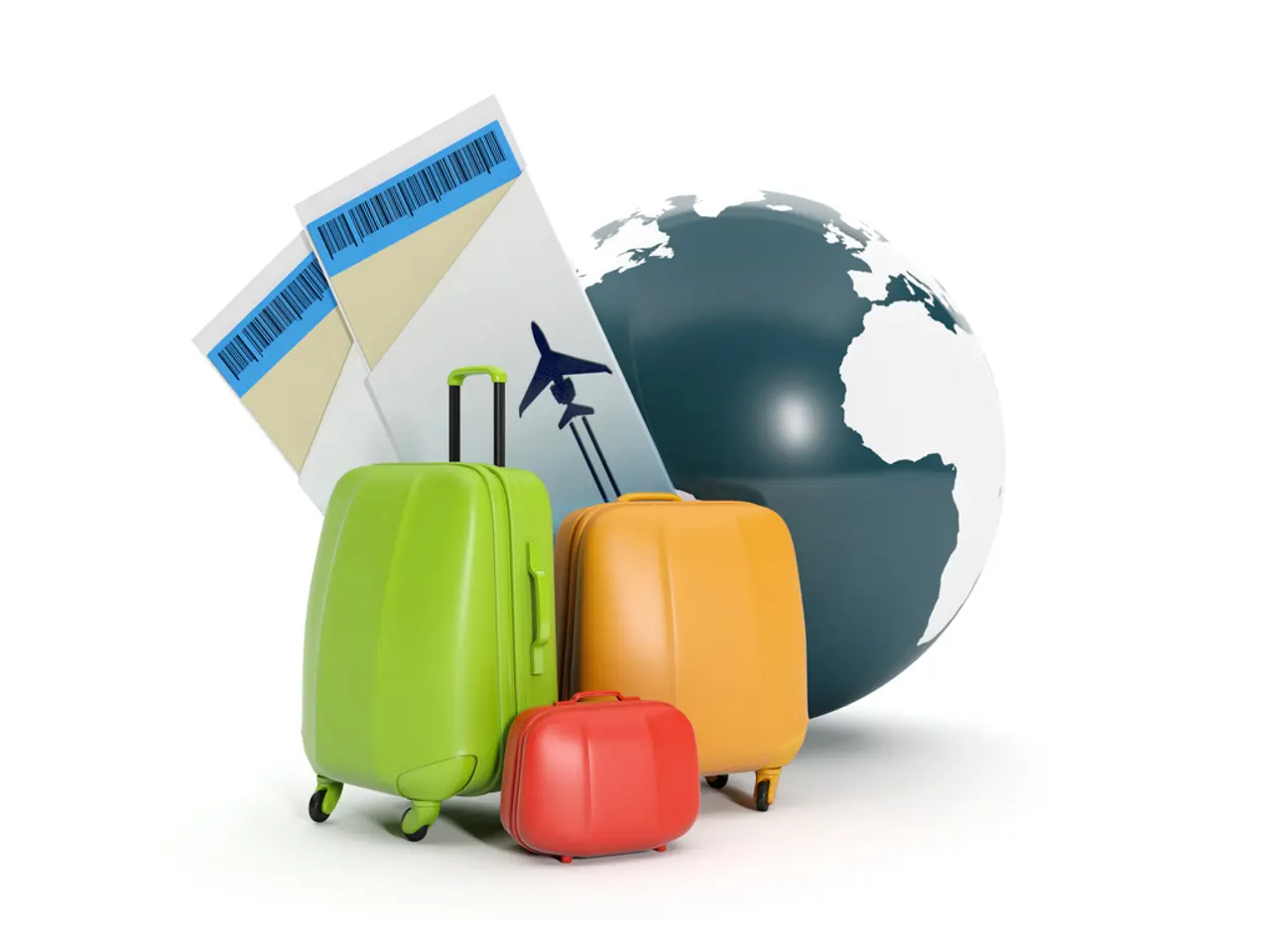Luxury air cabins receive investments from Gulf airlines, driven by a surge in demand for upscale travel
Gulf Airlines Embrace Luxury Travel Trend
The world of premium travel is experiencing a surge, and Gulf carriers like Emirates, Etihad Airways, Qatar Airways, and newcomers such as Riyadh Air are leading the charge. These airlines are investing billions in luxury cabins and services to cater to the growing demand for upscale flying experiences.
The Asia-Pacific region spearheaded this growth, with a staggering 22.8% increase in premium air travel, amounting to 21 million premium passengers. Europe, Latin America, the Middle East, and North America also saw premium travel exceed economy class travel.
Emirates, for instance, is investing $5 billion in a programme to retrofit its Boeing 777 and Airbus A380s, extending the life of older planes and keeping them flying for longer. This move comes after delays in the delivery of new models on order from the manufacturers.
Etihad Airways has made a departure from industry norms by introducing first and business-class on its Airbus A321LR. Gulf airlines are not just focusing on luxury cabins but also enhancing the overall travel experience with personalized wellness, exclusivity, and immersive experiences.
The market value in Gulf aviation is extraordinary, signalling a high return on investment, particularly in the premium economy class. Europe remains the largest market for international premium travel, with 39.3 million premium passengers. However, the Middle East's role as a connector between Europe, Asia, Africa, and the Americas has made premium travel "not simply a luxury, but a necessity."
The Middle East's global networks are diversified, making its premium travel growth "pretty solid." Some airlines are even flying over Russian airspace despite sanctions caused by the war in Ukraine, while others have dropped services, providing additional premium traffic for other airlines.
International premium class travel grew 11.8% globally, outpacing the growth in the world's economy-class travel of 11.5%. In 2024, the Middle East had the highest share of premium travellers globally, with 14.7 per cent of the total opting for business or first-class cabins.
Riyadh Air, set to debut in late 2025, aims to serve 100 international destinations by 2030. The total number of international premium-class travellers in 2024 reached 116.9 million, comprising 6% of total international passengers, according to IATA.
John Grant, senior analyst at travel data company OAG, attributes this growth to increased disposable income, an appetite for a less congested travel experience, and an increase in leisure travellers in the front of the cabin. Qatar Airways is also jumping on the bandwagon, introducing its new business-class seat, the "Qsuite Next Gen", on its Boeing 777-9 wide-bodies.
Sustainability and advanced technologies are emerging priorities in luxury travel, including in aviation. Gulf airlines are likely to adopt or complement these trends, with investments in AI-driven maintenance and sustainability technologies reflecting a future-oriented approach.
In conclusion, Gulf airlines are not only capitalizing on current premium travel demand but are actively investing and innovating to sustain long-term growth in this high-margin segment. The future looks promising for Gulf airlines and premium travel, with Riyadh Air's debut and the continued growth in luxury travel demand and evolving traveler preferences for wellness, personalized service, and unique experiences.
Read also:
- More than 7,000 instances of Chikungunya virus documented in China during significant outbreak
- City Maps for Solingen's Municipal Offices Now Accessible
- Police Update in Mönchengladbach on August 2nd During the Summer Break?
- Event at Ekya School Byrathi Encourages Cultural Interaction and Inspires Creativity within the Realm of Japan Festival





